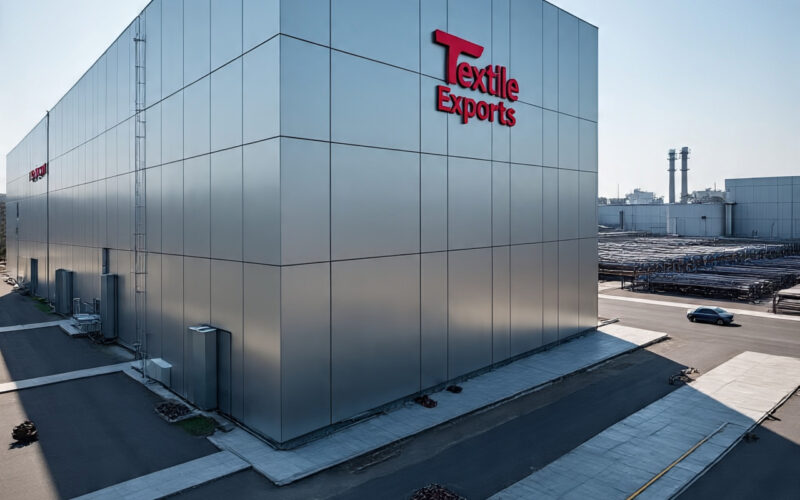#TextileExports #DGFT #EaseOfDoingBusiness #AdvanceAuthorisation #MMF #TechnicalTextiles #CottonExemption #MakeInIndia #GlobalTrade #IndianEconomy #ExportGrowth
New Delhi: In a major relief to India’s textile exporters, the Directorate General of Foreign Trade (DGFT) has announced the extension of the Export Obligation (EO) period under the Advance Authorisation scheme from 6 months to 18 months for products that fall under mandatory Quality Control Orders (QCOs) issued by the Department of Chemicals & Petrochemicals (DCPC). The announcement, formalized through Notification No. 28 dated 28th August 2025, comes as a much-needed step to ease compliance burdens and ensure uninterrupted export performance for textile manufacturers.
This decision has been widely welcomed by the man-made fibre (MMF) and technical textiles sectors, which had been seeking greater flexibility in meeting export requirements amid global supply chain pressures and rising raw material costs.
A Timely Support for the Textile Industry
The textile industry, which employs millions of people and is a cornerstone of India’s export basket, had raised concerns over the earlier 6-month EO period. The shorter compliance timeline was seen as restrictive, especially for exporters dealing with raw materials subjected to QCOs.
With the new extension, exporters will now have 18 months to fulfill their export obligations, providing them with operational breathing space. This will allow manufacturers to better align production cycles with global demand fluctuations while ensuring steady supply of raw materials.
Importantly, the DGFT has clarified that inputs imported under the Advance Authorisation Scheme will continue to remain exempt from mandatory QCO compliance, enabling uninterrupted procurement of critical raw materials.
Building on Textile Ministry’s Measures
This announcement complements the earlier relaxation provided by the Ministry of Textiles, which had already extended the EO period from 6 months to 18 months for QCOs notified by its department.
Together, the two measures offer comprehensive relief across the textile value chain. By removing bottlenecks, the government is ensuring that India’s textile exporters can maintain global competitiveness without being hampered by procedural hurdles.
According to DGFT data, nearly 18% of all Advance Authorisations issued in India are for the textile sector, underlining the significance of this policy intervention.
Cotton Duty Exemption: A Double Boost
Adding further strength to the sector, the government has also extended the exemption of import duty on cotton (HS 5201) until December 31, 2025. Cotton remains a vital raw material for India’s textiles and apparel industry, and this exemption is expected to keep input costs stable, particularly at a time when global cotton prices have shown volatility.
Industry insiders believe that this twin relief—longer EO periods and duty-free cotton imports—will help stabilize supply chains and enable exporters to accept larger orders from international buyers without fear of compliance deadlines or raw material shortages.
Industry Reactions and Benefits
Exporters’ associations and textile industry leaders have hailed the DGFT’s decision as a proactive, forward-looking move. Many have pointed out that the extension will:
-
Reduce compliance-related pressure on exporters.
-
Support better inventory planning and cost management.
-
Enable Indian exporters to meet longer-term contracts with global buyers.
-
Strengthen India’s position in key export markets such as the US, EU, and the Middle East.
“By extending the EO period, the government has acknowledged the real-world challenges faced by exporters. This is not just a compliance relaxation but a confidence-building measure,” said a senior member of a textile exporters’ body.
India’s MMF and Technical Textiles: A Growth Story
The decision also comes at a time when India is pushing aggressively to expand its presence in the MMF and technical textiles segments. In FY 2024-25, India’s exports under the MMF value chain were valued at USD 8.46 billion, including USD 401 million worth of MMF fibre exports.
MMF and technical textiles are increasingly being seen as the future growth engines of the sector, driven by demand from industries such as automotive, aerospace, healthcare, sportswear, and defense. By easing export obligations and securing raw material availability, the government is ensuring that India is well-placed to capture a larger share of this high-value global market.
Government’s Policy Push
The extension of EO timelines and cotton duty exemptions are part of a broader policy framework to boost India’s textile exports. The government is already implementing schemes such as the Production Linked Incentive (PLI) for textiles and the National Technical Textiles Mission (NTTM) to promote investment, innovation, and global competitiveness.
Officials from DGFT and DCPC have emphasized that these measures are designed not just as short-term relief but as long-term enablers of growth. By supporting exporters with flexible regulations and ensuring raw material security, the government aims to consolidate India’s leadership in the global textile market.
Outlook
With global demand for technical and sustainable textiles on the rise, India’s textile exporters are optimistic about the opportunities ahead. The government’s interventions, especially the EO extension, provide a foundation for stability and growth at a time when global trade is facing uncertainties.
As India continues to integrate more deeply into global value chains, these measures will help the industry not only survive challenges but also expand its footprint in new and emerging markets.
In essence, the EO extension and cotton duty exemption represent a significant step towards strengthening India’s textile industry, enhancing ease of doing business, and positioning the country as a reliable supplier in the global textile economy.
Hashtags
#TextileExports #DGFT #EaseOfDoingBusiness #AdvanceAuthorisation #MMF #TechnicalTextiles #CottonExemption #MakeInIndia #GlobalTrade #IndianEconomy #ExportGrowth

